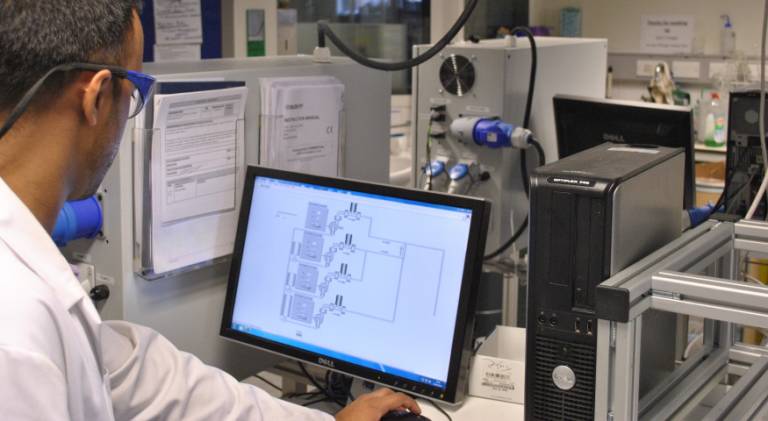Postgraduate Research
Content placeholder
PhD Chemistry

The Chemistry PhD programme is focused on a major piece of original research. You will study under the direct supervision of a member of staff, who is an expert in his or her area of specialisation. The department offers a broad range of research themes across physical, organic, inorganic and computational chemistry, specific departmental strengths are listed under research areas below.
Read more on the Chemistry PhD programme
- 3-year UCL-GSK Impact PhD Studentship Investigating New Chemical Methods for Empowering Antibody Conjugates (D/L: 05/08/2024)
Supervisors: Prof. Jamie Baker (UCL) and Prof. Vijay Chudasama (UCL)
Application deadline: 5/8/24
Interview date: TBC
Start date: 23rd September 2024UCL Chemistry Department is offering a fully funded studentship to a highly motivated candidate to start in September 2024. The student will carry out their doctoral research at UCL.
This UCL-GSK Impact PhD studentship is available to explore innovative new chemistries which aim to infer favourable properties on antibody conjugates, with application to antibody-drug conjugates (ADCs) which represent a leading class of the new generation of targeted anti-cancer therapeutics. The student will gain valuable research expertise during this project, making them well qualified for future employment in either an academic or industrial setting. This project will provide a thorough training in synthetic Organic Chemistry, Chemical Biology and Antibody Bioconjugation as well as in a series of transferable skills.
The applicants should have, or be expecting to achieve, a first or upper second-class Honours UK Master’s degree in Chemistry, or an MSci or MChem, or an overseas qualification of an equivalent standard. We are looking to recruit a highly motivated and ambitious organic chemist/chemical biologist. Experience in chemical biology, and in bioconjugation, is desirable.
Interested candidates should initially contact the supervisor, Prof. Jamie Baker, with a degree transcript and a motivation letter expressing interest in this project. Informal inquiries are encouraged. Please note that a suitable applicant will be required to complete MS Form entitled Application for Research: degree Chemistry programme. In addition, it is essential that suitable applicants complete an electronic application form at http://www.ucl.ac.uk/prospective-students/graduate/apply (please select Research degree: Chemistry programme) prior to the application deadline and advise their referees to submit their references as soon as they possibly can. All shortlisted applicants will be invited for an interview no more than 4 weeks after the application deadline. Any admissions queries should be directed to Dr Jadranka Butorac at doctoral.chem@ucl.ac.uk.
Applications are welcome from UK nationals, EU students with settled/pre-settled status and students with indefinite leave to remain or enter. Please note that the studentship only covers home fees. The updated rules for eligibility for home fees for next year are available at View Website.
Applications will be accepted until 05/08/24.
 Close
Close

